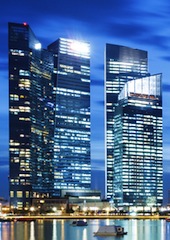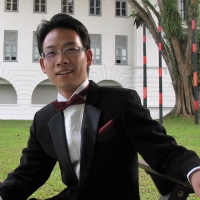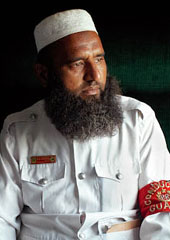Is Singapore Happy?
How should the happiness of a society, such as Singapore, be measured?
November 10, 2013

In early September, the United Nations Sustainable Development Solutions Network (UN SDSN) released its World Happiness Report 2013. According to the report, Singapore ranks the 30th happiest among 156 countries and in the top 4 in Asia, after United Arab Emirates (14th), Oman (23rd) and Qatar (27th). This is in stark contrast with unhappy Hong Kong.
However, according to the Happy Planet Index 2012, published by the Centre for Well-Being of the New Economics Foundation (NEF), Singapore only ranked the 90th out of 151 countries, far behind its regional peers, Vietnam (2nd), Bangladesh (11th) and Indonesia (14th).
Data issues aside, this leads to a broader question: is Singapore actually a happy or unhappy society?
A successful business society
The UN report actually acknowledges the fact that Singapore has been a very successful business society, but that the relationships among its community members need to be better groomed.
In terms of GDP per capita, Singapore is the third richest country in the world, in terms of life expectancy, Singapore is ranked as the world’s No. 4 by the World Health Organisation (WHO), and in terms of corruption, Singapore remains 5th least corrupt country in the Corruption Perceptions Index released the Transparency International (TI).
However, Singapore’s performance is much less stellar on those indicators involving interactions among people. For the indicator “having someone to count on in times of trouble”, Singapore just ranks 48th place, for the indicator of generosity, Singapore ranks as the 110th in the UN report and the 114th in the World Giving Index (WGI) 2012.
Also according to a Gallup poll in 2012, “Singaporeans are the least likely in the world to report experiencing emotions of any kind on a daily basis.”
Moreover, the widening income inequality further estranges the harmony and solidarity among people in Singapore. Singapore’s Gini coefficient has been above the international warning line 0.4 for decades. It rose from 0.454 (before government transfers and taxes) in 2001 to 0.478 in 2012. Singapore’s income gap between rich and poor is higher than that for the OECD countries and even worse than in still developing China.
As a successful business society, Singapore’s future challenge is not how to sustain economic growth, but how to create a city-state of happiness, where all individuals can enjoy quality life while also caring for others.
For Singapore’s government, that means it needs to take better care of the needy and less fortunate residents, while a social culture of philanthropy should be effectively fostered.
Estranged people relationships
Meanwhile, individuals also need to adjust their mindsets so as to live happily. Happiness is basically an emotional perception. Usually, people feel happy not because they obtain more– but demand less.
“Natural selection and survival of the fittest” has long been viewed as a universal rule. Therefore, it is understandable that Singapore has to compete hard so as to survive in the global arena as do Singaporeans.
However, it seems that within Singapore, this notion has been carried too far. Singapore society is commonly perceived as ‘materialistic, competitive and elitist’ by its own residents.
What is especially troubling is the inherent elitism in Singapore has led to the peculiar definition of personal success. As a result, the competitions in schools and beyond is especially fierce. People study and work purely for social status and personal face, that will not lead to happiness
The Singapore National Pledge outlines the blueprint of Singapore is “to achieve happiness, prosperity and progress”. Since its independence 48 years ago, Singapore has enjoyed a tremendous increase in prosperity. For further progress, it is time to be much more mindful of the personal and social dimension of happiness, even if they are harder to quantify.
Takeaways
Singapore has been very successful in business, but relationships among its citizens need to be better groomed.
As a successful business society, Singapore’s future challenge is how to create a city-state of happiness.
A happy Singapore, beyond business success, would be one where all enjoy quality life while caring for others.
“Survival of the fittest” was long the worldview of competitive Singapore. Within Singapore, it has gone too far.
Singapore enjoys tremendous prosperity. For further progress, it must consider a social dimension to happiness.

